
Earlier, the Federal Reserve stood poised to cut the benchmark interest rate, which boded well for reliable dividend stocks. Essentially, Uncle Sam’s high yields wouldn’t compete with the passive income stemming from private enterprises.
However, the latest reading from the pulse of the labor market shows that fewer Americans are filing for unemployment benefits. Per Reuters, this dynamic points to sustained strength in the underlying economy. If so, more money is chasing after fewer goods, which is inflationary. That’s not a great time to lower borrowing costs.
Still, let’s also keep in mind that there are geopolitical flashpoints going on. Not only that, they are almost certain to worsen. With that in mind, a flight to safety into government bonds may occur. Since bond prices and yields share an inverse relationship, yields could decline, making enterprise-sourced passive income attractive.
Plus, there are other relevant undercurrents that can make dividend payers attractive. On that note, below are reliable dividend stocks to consider.
Abbott Laboratories (ABT)
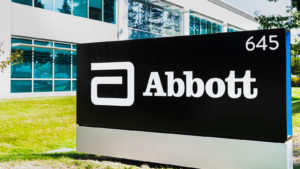
Based in North Chicago, Illinois, Abbott Laboratories (NYSE:ABT) ranks among the biggest medical device enterprises in the world. Per the public profile, Abbott discovers, develops, manufactures and sells healthcare products worldwide. It provides a vast portfolio of therapeutics addressing a range of conditions, from irritable bowel syndrome to hypothyroidism. It also engages in critical services, such as hormone replacement therapy.
Thanks to its tremendous relevance, Abbott represents one of the most reliable dividend stocks. Right now, the company offers a forward yield of 2.12%, which is a bit above the healthcare sector’s average yield of 1.58%. However, the payout ratio is reasonable at 42.78%, translating to confidence in yield sustainability. Further, it enjoys 53 years of consecutive payout increases, making Abbott a dividend king.
In the trailing 12 months (TTM), Abbott posted net income of $5.61 billion on revenue of $40.33 billion. For fiscal 2024, experts anticipate earnings per share of $4.28 on sales of $368.56 billion. That’s disappointing. However, the bottom line could expand to $4.75 per share on sales of $41.36 billion in fiscal 2025.
Kroger (KR)
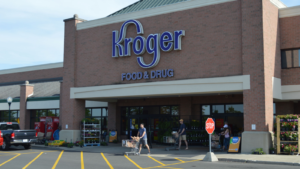
A grocery store giant, Kroger (NYSE:KR) makes for a boring case for reliable dividend stocks. However, boring works very well during periods of potential economic uncertainty. The Cincinnati, Ohio-based enterprise benefits from permanent relevance. No matter what happens in the market, people have to eat. Kroger could also benefit from the trade-down effect.
Because accruing enough calories is of critical importance, people will not sacrifice their grocery budget (because they can’t). Call it cynicism if you want but the reality is that KR stock should benefit, even under (or perhaps especially because of) difficult circumstances. Therefore, the company’s forward dividend yield of 2.19% is passive income you can trust.
Adding to the reliability factor, the payout ratio sits at 25.57%. Also, Kroger enjoys 18 years of consecutive dividend increases. That’s a status that management will want to keep going.
Covering experts anticipate a slow cycle this fiscal year. However, the next year could see EPS of $4.55 on sales of $151.36 billion. These aren’t exciting stats but they should keep the lights on.
Home Depot (HD)
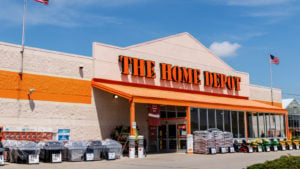
Headquartered in Atlanta, Georgia, Home Depot (NYSE:HD) falls under the home improvement retail sector (obviously). Per its public profile, the company sells various building materials, products and materials for the lawn and garden. Fundamentally, Home Depot serves as a one-stop shop for various things that can go wrong under homeownership.
I mention that because the Covid-19 crisis sparked a sharp erosion of the benchmark interest rate. In turn, that dynamic led to a surge in real estate demand. Now, people have a bunch of homes, having made the transition from being renters/tenants. That comes with the stark realization that the homeowner – not anyone else – is responsible for when pipes break or some other crisis materializes.
HD isn’t a sexy idea for reliable dividend stocks but it makes the case for being trustworthy. Right now, the company offers a forward dividend yield of 2.77%. That’s above the consumer discretionary sector’s average yield of 1.89%. Also, Home Depot commands 15 years of consecutive payout increases.
For the next two years, experts see slow-and-steady growth in the top and bottom lines. It’s standard stuff but HD should keep you out of trouble.
Comcast (CMCSA)

Hailing from Philadelphia, Pennsylvania, Comcast (NASDAQ:CMCSA) falls under the telecom services category. It’s a massive media and technology firm with a global presence. On the telecom side, Comcast offers broadband and wireless connectivity services. As for entertainment, it competes with other powerhouse brands. What might make it compelling is the Theme Parks segment.
While the revenge travel phenomenon is no longer as acute, the sentiment has gave way to a concept known as travel prioritization. Stated differently, consumers – especially from younger cohorts – prioritize experiential expenditures. That makes sense as the SARS-CoV-2 virus disrupted everyone’s lives. Subsequently, the crisis forcibly demonstrated what’s truly important in life. So, it’s possible that Comcast’s Universal-branded parks could see increased demand.
During the TTM period, Comcast posted net income of $15.41 billion on sales of $121.94 billion. For fiscal 2024, analysts believe EPS could rise to $4.22 on revenue of $123.92 billion. If so, that would translate to bottom-line growth of 6% and top-line expansion of 1.9%.
It’s not groundbreaking stuff. However, Comcast also offers a forward yield of 3.22% with a modest payout ratio of 31.3%. With that, it ranks among the reliable dividend stocks to consider.
Sempra (SRE)
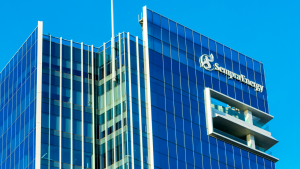
Headquartered in San Diego, California, Sempra (NYSE:SRE) is one of the powerhouses in the diversified utilities space. The energy infrastructure company operates through three segments: Sempra California, Sempra Texas Utilities and Sempra Infrastructure. Fundamentally, what makes me a consistent believer in SRE is that it owns a large chunk of the viable Southern California economy.
As you know, the Golden State is the economic engine of the nation. Further, Southern California is especially prime because of its ports and proximity to Mexico. Yes, people may be moving out of California for various reasons, usually tied to the cost of living. However, San Diego itself – Sempra’s key market – is expanding.
With that reality, SRE represents one of the reliable dividend stocks. Currently, Sempra offers a forward yield of 3.27%. Moreover, it commands 21 years of consecutive payout increases.
For fiscal 2024, analysts see a decline in sales of 3.6% to $16.12 billion. However, in fiscal 2025, revenue could rise to $16.91 billion, backed by a blue-sky target of $19.09 billion.
Medtronic (MDT)

Based in Dublin, Ireland, Medtronic (NYSE:MDT) falls under the medical devices category. According to its public profile, Medtronic develops, manufactures and sells device-based medical therapies to healthcare systems, physicians, clinicians and patients worldwide. It offers a range of critical services, from cardiovascular to neuroscience. Medtronic is also a big player in the diabetes care segment.
For passive income, the company offers a robust forward yield of 3.4%. That’s noticeably above the underlying healthcare sector. Also, the payout ratio comes in at 48%, which is very reasonable, especially considering the yield. But the biggest takeaway (in my opinion) is the 47 years of consecutive payout increases. Management will want to keep this trend going.
In the TTM period, Medtronic posted net income of $4.2 billion on sales of $32.32 billion. Presently, the company’s quarterly revenue growth rate (year-over-year) comes in at 4.7%. For the current fiscal year, EPS may dip 1.63% to $5.44. However, revenue could rise 3.6% to $33.54 billion. Given the underlying relevance, MDT ranks as a top player among reliable dividend stocks.
Kinder Morgan (KMI)
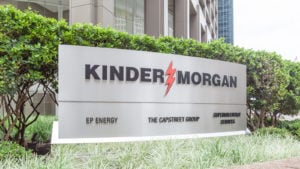
Headquartered in Houston, Texas, Kinder Morgan (NYSE:KMI) operates in the oil and gas midstream sector. Billed as an energy infrastructure company, Kinder Morgan operates through its various pipelines and terminals. On the surface, this enterprise model may seem somewhat anachronistic given the push for clean and renewable energy infrastructure. However, hydrocarbons may impose a reality check.
We’re already seeing it with the demand fallout with electric vehicles. While making the transition to electric may work for some folks, it doesn’t work for everyone – at least not yet. Therefore, hydrocarbons will likely remain relevant for a very long time to come. And that’s great news for Kinder Morgan, making KMI one of the reliable dividend stocks to consider.
For passive income, the company offers a forward yield of 6.03%. That’s well above the energy sector’s average yield of 4.24%, which is plenty high. However, the one drawback is the hot payout ratio of 92.25%. Stil, the relevance of the business should make KMI trustworthy.
Finally, analysts rate shares a consensus moderate buy with a $20.42 average price target, implying 7% upside potential.
On the date of publication, Josh Enomoto did not have (either directly or indirectly) any positions in the securities mentioned in this article. The opinions expressed in this article are those of the writer, subject to the InvestorPlace.com Publishing Guidelines.




